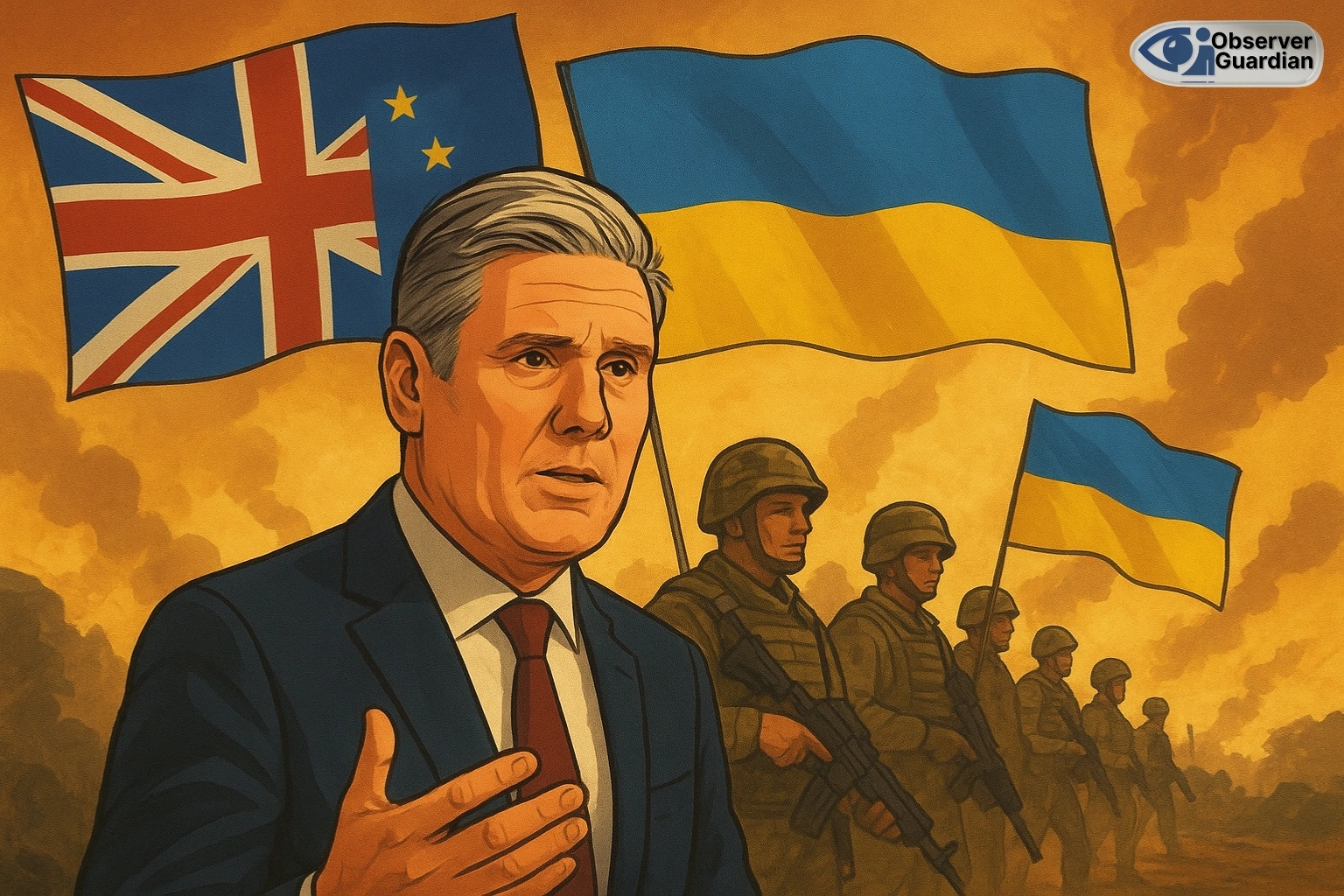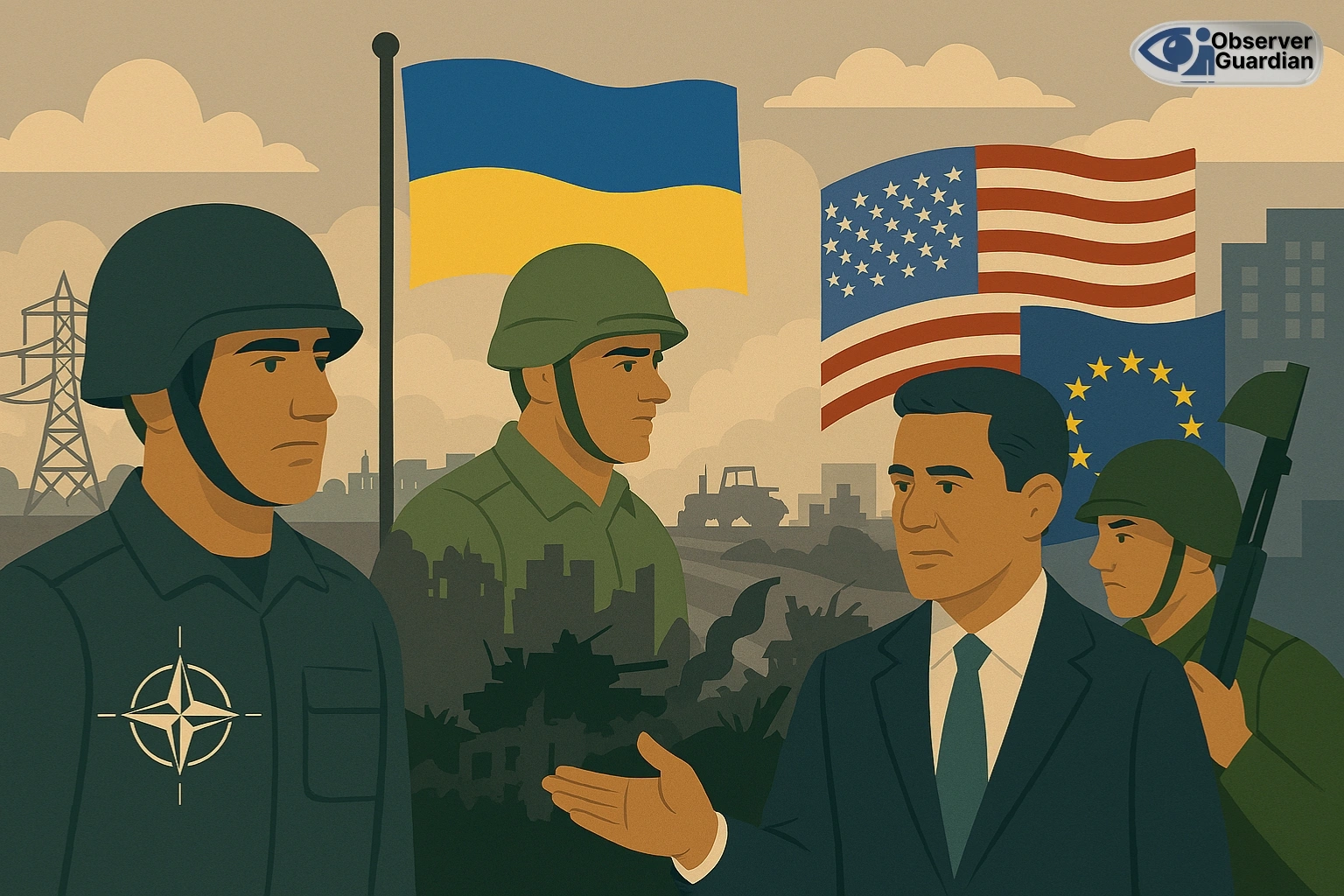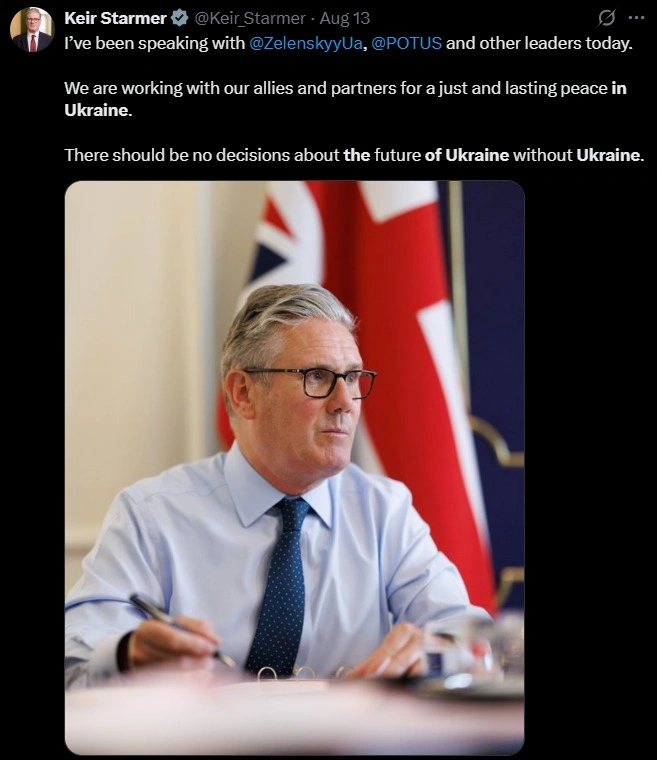It is a critical point in the war which is followed by the announcement by the UK Prime Minister Keir Starmer that Britain is developing a coalition. This is with the willing European partners to strengthen the already present assistance to Ukraine. The step represents not only the time sensitivity of the war but also the mystery about post war American policy. Especially the ever more transactional Donald Trump approach to Ukraine. The fact that Starmer frames the issue making moral parallels between the defense of Ukraine now a days. Even the fight of the allies against the fascists during WW2 proves that the moral aspect of this war is significant. By placing the focus on the principle of freedom, sovereignty and the rule of law in Ukraine as well as the urge to confront Russia. Starmer presents the UK as the engine of the European conscience to keep with what it proclaims.
A War Necessity Government
The coalition of willing is an idea used previously in the military intervention contexts yet in it has a defensive and principled style. The formation of the coalition becomes unavoidable as Europe is no longer able to count on Washington and receive support of Kyiv unconditionally without any breaks. Trump openly harbored the possibility of coercing Ukraine into territorial give ups and a move which would embolden Russia and destabilize the international order of security. The action by Starmer is in this sense neither less nor more than pragmatic and a symbol of the European determination not to bend its knees in the face of American leadership failure. In addition, it also makes Ukrainians feel that their sacrifice will not be cast aside as a mere geopolitical bargaining chip.
History Lessons
Starmer is well playing the well of historical consciousness by referring to the morality of a World War II. Allied action in the 1940s was not only about resistance to a conqueror but was concerned with defending a universality system that was under a threat of destruction. In the same way the modern war in Ukraine is also not just about the fact that Kyiv will or will not control the Donbas or even Crimea. It concerns the question of whether the 21st century will allow to endure naked aggression, annexation and redrawing of the borders by force. The echoes are not of the most benignant rhetoric, and they tell us something of the peril of appeasement. The 1938 Munich Agreement stopped war temporarily, but it was the agreement that gave strength to Hitler. Conducting an analogous compromise with Vladimir Putin would be dangerous in this manner as it will recommit such a serious error.

Strategic Autonomy of Europe
The coalition project initiated by Starmer also represents a more general discussion in Europe of strategic autonomy. Over many decades Europe has continued to heavily rely on American leadership in NATO by presuming that the Americans will be willing to finance the European continent security.
However, with Washington increasingly growing divisive Europe must be ready to take up greater responsibility. The industrial capabilities and political determination of the UK, France, Germany and other European powers are enough to continue Ukrainian defense, economy and diplomacy in case they move in unison.
Whether such a coalition were managed effectively and would be the testing ground of a more balanced partnership between the transatlantic area one in which Europe does not just ride on the back of American security but is an equal foundation of Western defense.
Combating Political Fatigue
Nonetheless the task appears intimidating. There is also evidence of some European voting populations becoming frustrated by the economic expenses, increasing energy expenses and by the perceived never ending nature of the war. Populist leaders throughout the continent are feeding these fears by making the claim that it is time to cut their losses and force bargaining. Starmer does not simply have a diplomatic task but a communicative one which is quite different. He must argue that US is not providing aid to Ukraine out of charity but self preservation. Should Russia achieve success in Ukraine and will not end there therefore the Baltic states, Moldova and other countries including those of NATO might as well get in trouble. The ability to portray the conflict as the conflict of Europe rather than a conflict of Ukraine is a key to keep the popular solidarity on the conflict.
Moral Responsibility in Contemporary Politics
Starmer focuses on the moral layer of leadership and thus distinguishes himself as a leader to the transactional world where Trump processes international relations.
The fact that Starmer has likened the fight of Ukraine to World War II sets an intention of politicking on principles of accountability as opposed to expediency.
By leaving a sovereign state to itself when it is under attack democracies fail that nation and more importantly betray the principles that continue to ensure safety in their societies. The ethical sharpness of connection made between the past and the present and the mists of political disenchantment and geopolitical pragmatism.
A European Moment of Definition
The initiative of the UK to create a coalition of the willing is an opportune and needed decision to provide support to Ukraine. It concedes to the darkening shadow of the US policy but at the same time it reiterates that Europe can be a leader by itself. Citing the World War II with the parallel Prime Minister Starmer reminds us that history does not spare those who appease it and instead history rewards a determined approach. Europe can either step up to action or bury its head in complacency.
The way out presupposes coalitions like the one led by Starmer, but it can operate only in case the continent accepts the moral and strategic necessity of the need to stand ground against aggression.
Disclaimer: The views and opinions expressed in this article are exclusively those of the author and do not reflect the official stance, policies, or perspectives of the Platform.








